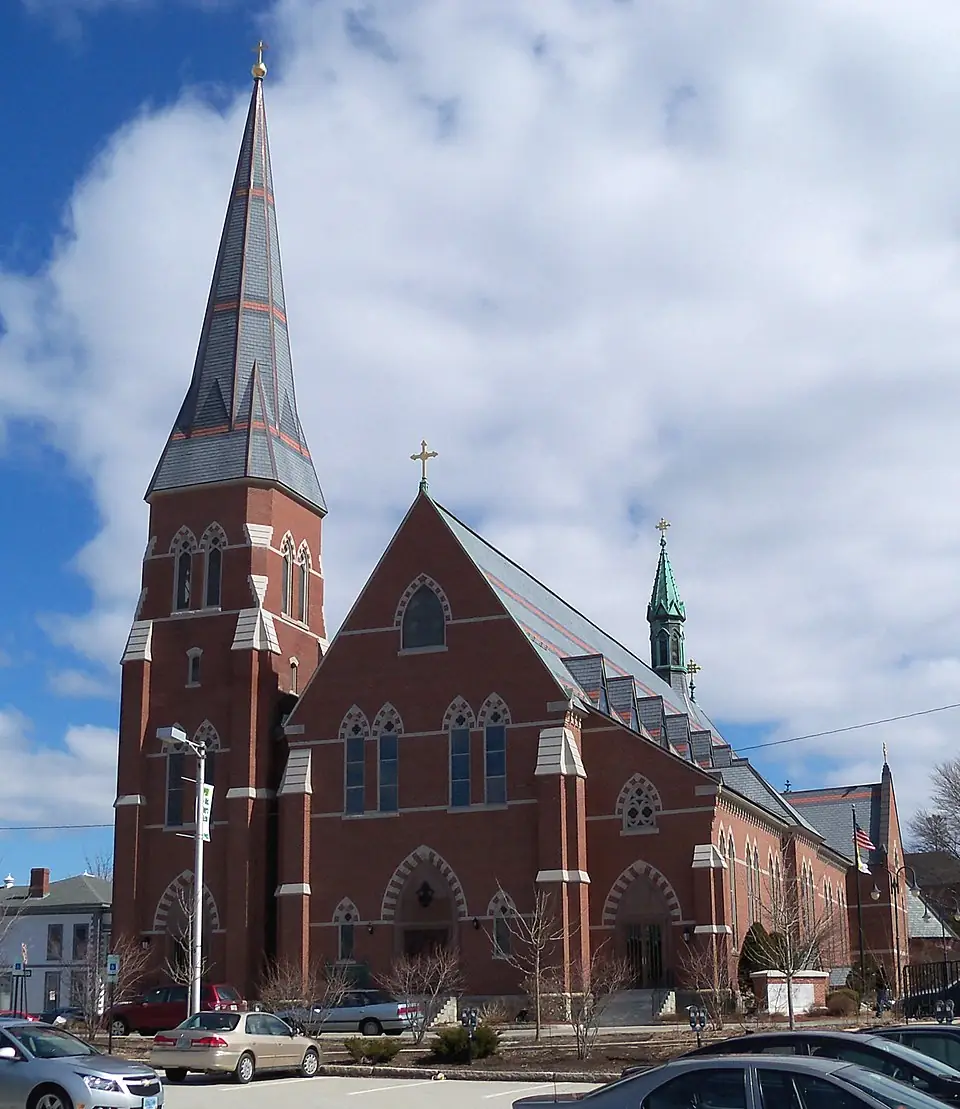Photo: Cathedral of St. Joseph in Manchester, New Hampshire; via Wikipedia.
The highest court in New Hampshire has ruled that a 2020 state law removing time limits for filing lawsuits related to sexual abuse cannot be applied retroactively, ABC News reported today.
The decision stems from the case of Randy Ball, who sued the Roman Catholic Bishop of Manchester in 2023, alleging he was raped by a priest at a summer camp in the 1970s. Under the law in effect at the time, Ball had only until age 20 in 1986 to file suit. He argued that the 2020 amendment eliminating the statute of limitations should apply to his case, but the court disagreed.
The justices found that retroactively applying the 2020 law would violate the state Constitution, which grants defendants a vested right to use the statute of limitations as a legal defense. The court acknowledged the seriousness of child sexual abuse but said its role was to uphold constitutional protections.
In court documents, Ball’s attorneys wrote that it was understandable their client took decades to come forward, describing how the now-deceased priest told him the rape was “the product of God’s love and all part of His plan.” They urged the court to balance the diocese’s right to invoke the statute of limitations against Ball’s right to seek justice for the harm he suffered.
“It is one thing in a debt collection case to claim a right based on the passage of time to keep one’s books in order,” the attorneys wrote. “It is another thing altogether to claim freedom from accountability for one’s part on the rape of a child because enough time has passed to make one believe they have escaped liability for the same.”
The Diocese of Manchester said defending decades-old cases is difficult because witnesses and evidence are often no longer available. “In this case, the report was made 50 years later, and the accused priest died in 2002,” the diocese stated. It added that protecting children remains among its highest priorities.
In 2002, following a lengthy investigation, the state agreed not to prosecute the diocese or its officials for their handling of sexual abuse allegations in exchange for reforms, public acknowledgment of harm, and regular audits. “For more than 20 years, the Diocese has worked with victims and survivors of abuse to listen to their experiences and respond as each person may need, including pastoral care, counseling support, and financial assistance,” the diocese said.
It remains unclear how many potential lawsuits will be affected by this ruling. Similar legal questions have surfaced in other states. In January, the Maine Supreme Judicial Court ruled that its 2021 law removing civil time limits for child sexual abuse claims could not apply retroactively either.
What Does This Mean for Survivors?
For survivors in New Hampshire who experienced clergy or institutional abuse years or decades ago, this ruling is deeply significant. It does not mean survivors should stay silent, but it does highlight the importance of acting as soon as possible. The New Hampshire Supreme Court’s decision limits the reach of the 2020 law that abolished time limits for sexual abuse lawsuits, meaning that if the abuse occurred long ago and the statute of limitations expired under the older law, a lawsuit may no longer be possible in state court.
However, that does not mean there are no options. Survivors may still have other legal avenues depending on the facts of their case, such as where the abuse occurred, where the abuser or institution is located, or whether new evidence or concealed misconduct has recently come to light. Some states have different or extended “lookback windows” that temporarily reopen expired claims. Others allow cases to proceed if survivors can show that the institution intentionally hid the abuse.
If you are a survivor who has carried this pain for years but never reported it, this ruling should not discourage you from learning about your rights. Even when state laws appear restrictive, experienced attorneys can often find legal strategies to pursue justice through civil claims, bankruptcy trust processes, or federal court. Coming forward allows survivors to learn their options before additional time passes, and ensures their story is heard in a system that too often silenced them.
For more information on your rights and potential next steps, visit our Catholic Church Sexual Abuse Lawsuit Guide.
You may also fill out the secure, confidential form below to receive a free case review.




